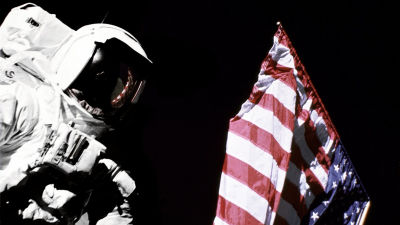Prolonged space flight can reduce human immunity and cause viral infections

NASA is
Frontiers | Herpes Virus Reactivation in Astronauts During Spaceflight and Its Application on Earth | Microbiology
https://www.frontiersin.org/articles/10.3389/fmicb.2019.00016/full
Dormant viruses activate during spaceflight: The stress of spaceflight gives viruses a holiday from immune surveillance, putting future deep-space missions in jeopardy --ScienceDaily
https://www.sciencedaily.com/releases/2019/03/190316162211.htm
To investigate the effects of the virus on astronauts on long-term missions in space, NASA sampled saliva, blood, and urine from 89 Space Shuttle crew members and 23 International Space Station (ISS) crew members. Was collected and analyzed.
As a result, herpes simplex virus , Epstein-Barr virus , varicella-zoster virus , from samples submitted during space flight by 47 out of 89 Space Shuttle crew members and 14 out of 23 ISS crew members, Cytomegalovirus was detected, which was found to be higher than the pre- and post-space flight samples of each aviator or the samples from healthy controls. In addition, the research team found that six astronauts had reactivated these viruses, causing opportunistic infections.

Humans are naturally immune and suppress the growth of less pathogenic indigenous bacteria and viruses. However, if the immune system is weakened for some reason, it may allow the growth of these indigenous bacteria and viruses, resulting in 'opportunistic infections' that cause illness.
Most adults are infected with these viruses, but they rarely multiply enough to be excreted in urine or saliva by immune function. However, as a result of increased secretion of stress hormones such as

by
The Space Shuttle crew will be on a mission in space for around two weeks, and the ISS crew will be on a mission in space for more than six months, but NASA's manned exploration of Mars will be tasked on an annual basis. .. 'The scale and frequency of virus propagation increases with the length of spaceflight,' said a NASA research team, suggesting that reactivation of the virus could pose a greater risk to astronauts.
NASA's Johnson Space Center researcher Satish Mehta said, 'NASA astronauts are exposed to microgravity and cosmic rays for weeks or months and experience a strong G during takeoff and re-entry. It will also be socially isolated and placed in a closed environment for a long period of time, 'he said, pointing out that astronauts will be much more stressed than usual.

by NASA Johnson
'The ideal solution is to vaccinate astronauts, but the only corresponding vaccine is the varicella vaccine . We can hardly expect the completion of other herpesvirus vaccines, so we will re-vaccine. We are focusing on developing treatments for activation. '
Related Posts:
in Science, Posted by log1i_yk







